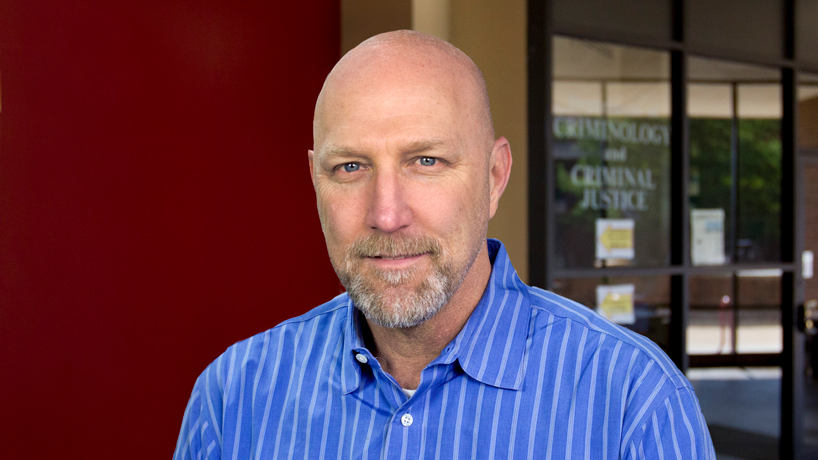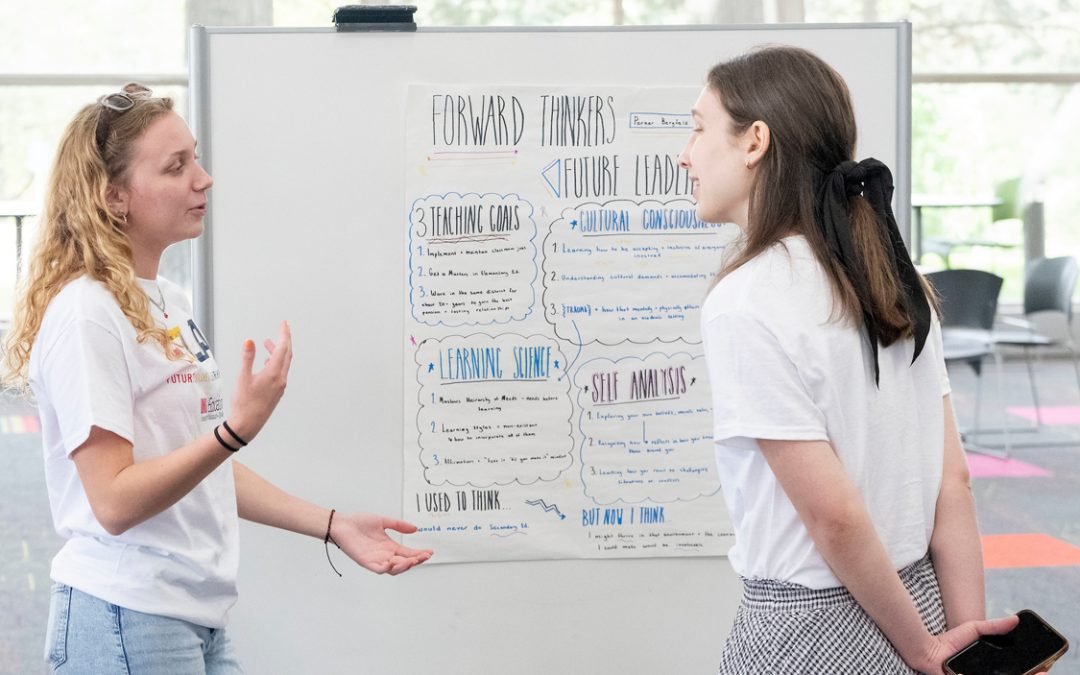
UMSL criminologist David Klinger joined a panel discussing why so few deadly police shootings end in police convictions on Thursday’s broadcast of PBS NewsHour. (Photo by August Jennewein)
The release of dashboard camera video of a traffic stop that ended in Philando Castile’s death led to renewed scrutiny of the officer-involved shooting in Minnesota, days after officer Jeronimo Yanez was acquitted of criminal charges filed in its wake.
With another jury this week finding Milwaukee police officer Dominique Heaggan-Brown not guilty of reckless homicide in another controversial police shooting that sparked two days of protests last year in the city, PBS NewsHour enlisted University of Missouri–St. Louis Professor David Klinger to explore the question of why so few deadly police shootings end in police convictions.
Klinger, a faculty member in the Department of Criminology and Criminal Justice who has done extensive research on officer-involved shootings, joined host John Yang and Brittany Packnett, a co-founder of Campaign Zero, an organization pressing for police reform on Thursday night’s broadcast.
“I think one of the things that people have to understand is that there’s basically a federal standard that was laid down in Graham v. Connor, which is a 1989 U.S. Supreme Court ruling that says you have to look at it through the eyes of a reasonable officer on the scene,” Klinger said.
“And so what has happened over the years is that most states, that I’m aware of at least, they basically incorporate this standard of an objectively reasonable officer on the scene. And then what happens is, we have a situation where defense attorneys explain to the jury what a reasonable officer at the scene could have or should have done. …
“When you have jurors who are novices getting educated, a good defense attorney makes an argument, and the jury says, ‘Oh, that make sense, I understand that that officer could have been fearful or could have perceived that his or her life was in jeopardy,’ and an acquittal is forthcoming, and, as I indicated, sometimes clearly so. And, other times, it leaves many of us who are in the profession scratching our head, because we know there’s bad shootings and we know there’s bad cops.”
Klinger this week was also one of several experts The New York Times cited in an analysis of the dash-cam video of Castile’s traffic stop and shooting.
Media Coverage
PBS NewHour
The New York Times














